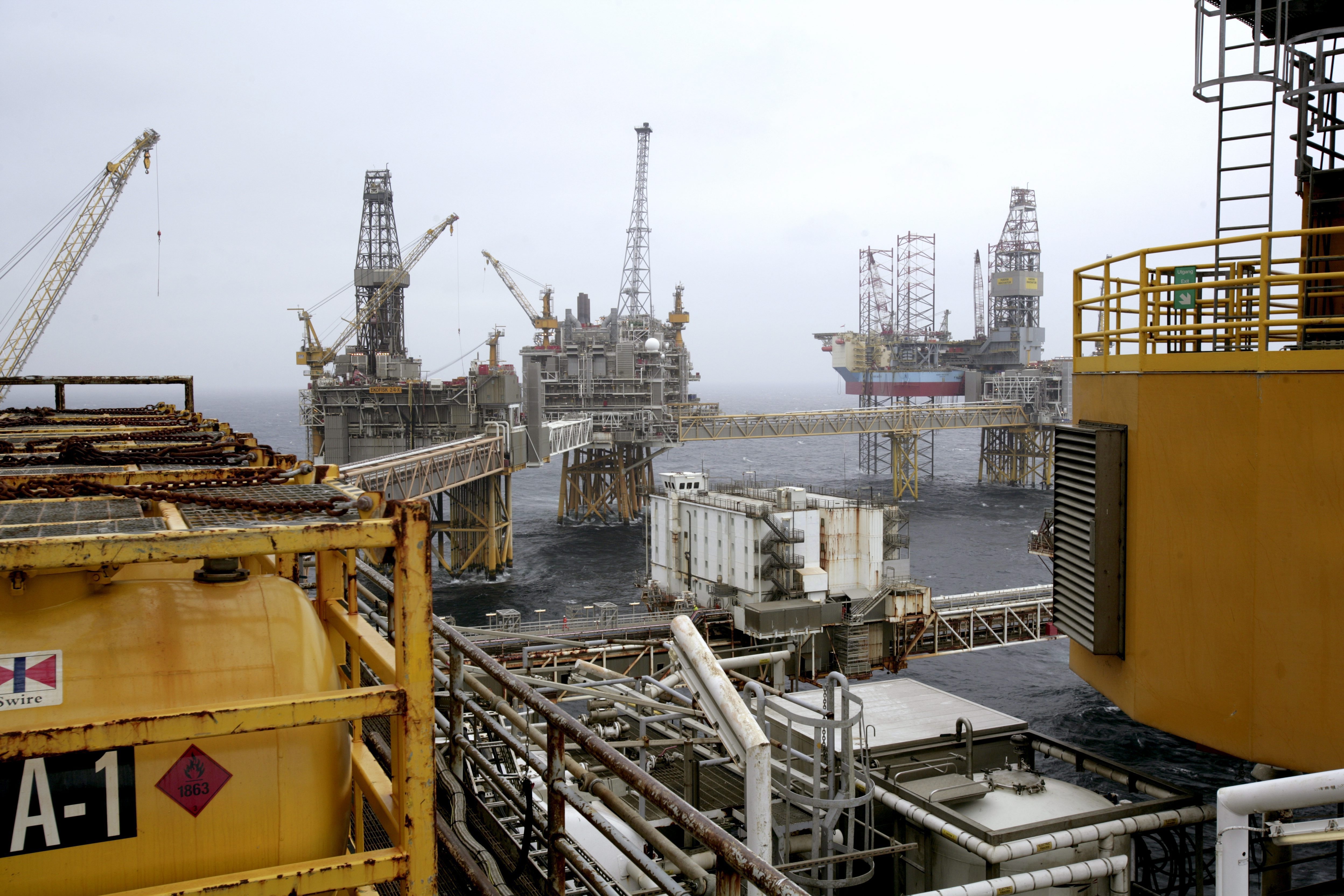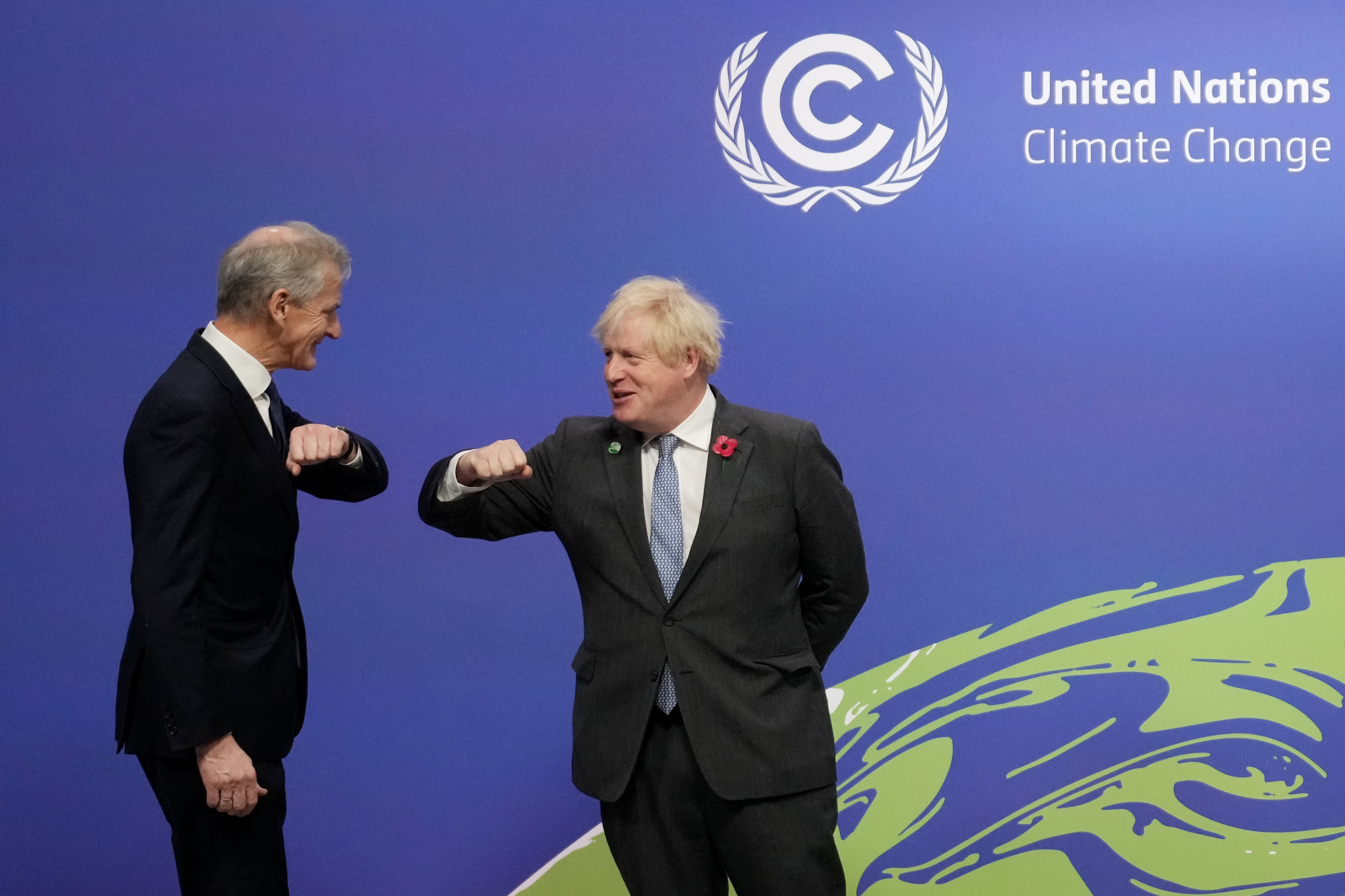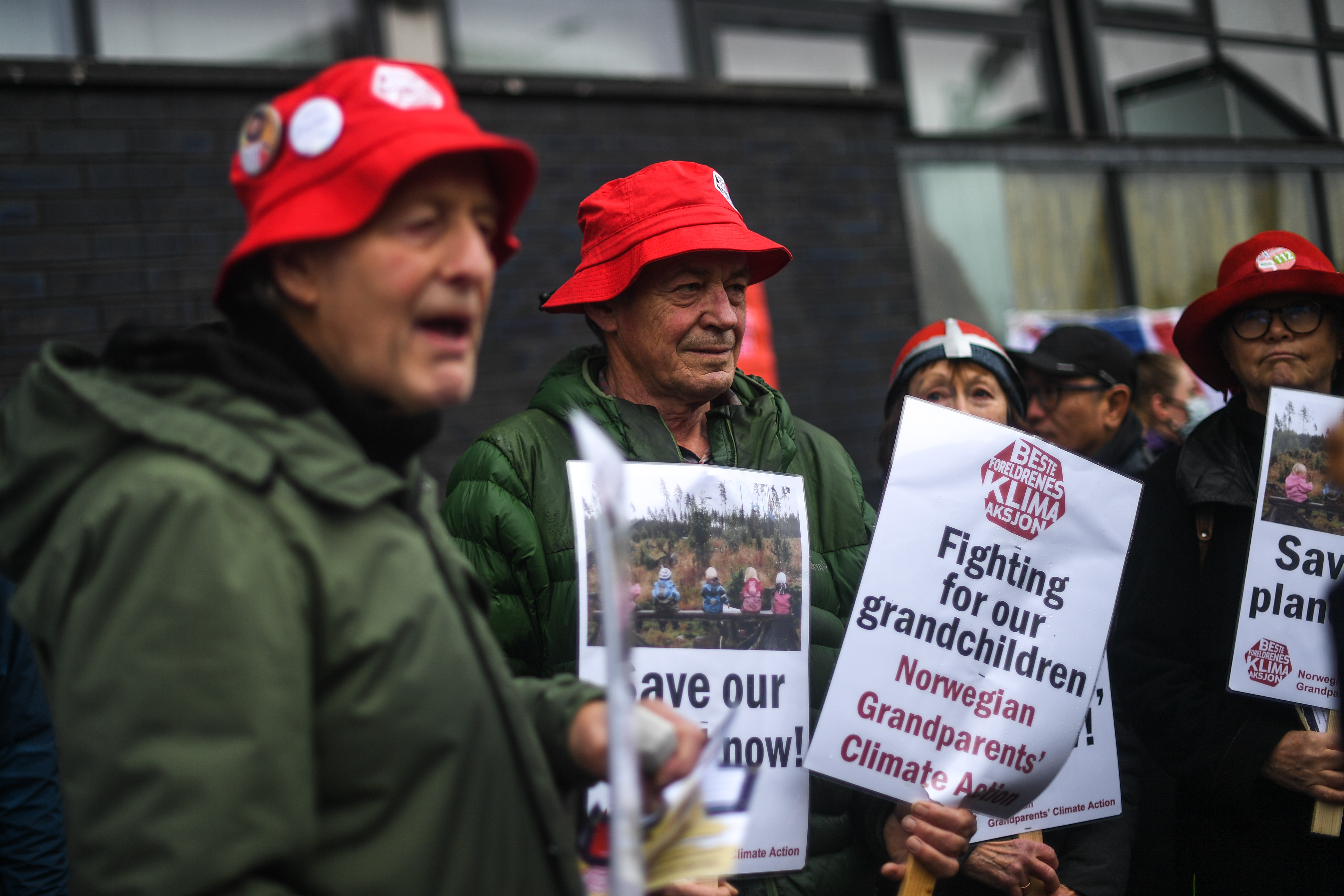Is Norway a climate hypocrite?
The Scandinavian nation has world-beating green credentials – but it is also a fossil fuel giant

A free daily email with the biggest news stories of the day – and the best features from TheWeek.com
You are now subscribed
Your newsletter sign-up was successful
In many ways, Norway is exceptionally green. About 95% of its electricity comes from hydropower, and nearly all the rest from other renewables such as thermal and wind.
It has the highest per capita use of electric cars of any country in the world: in September, a whopping 77.5% of new cars sold there were electric. The capital Oslo has been redesigned to remove parking spaces and to encourage walking and cycling. Norway was one of the first nations to introduce a carbon tax, which is expected to raise over £500m in 2021.
It was also the world’s first industrialised nation to ratify the Paris Agreement aimed at keeping global warming well below 2°C above pre-industrial levels, and, in 2016, its parliament agreed on a goal to cut the country’s net greenhouse gas emissions to zero by 2030. Yet at the same time, paradoxically, Norway benefits from a big oil and gas industry.
The Week
Escape your echo chamber. Get the facts behind the news, plus analysis from multiple perspectives.

Sign up for The Week's Free Newsletters
From our morning news briefing to a weekly Good News Newsletter, get the best of The Week delivered directly to your inbox.
From our morning news briefing to a weekly Good News Newsletter, get the best of The Week delivered directly to your inbox.
How big exactly?
Huge, particularly relative to its population of only 5.4 million. Norway is Europe’s second-largest oil and gas producer, behind only Russia, producing four million “barrels of oil equivalent” per day. It provides about a quarter of the EU’s gas imports. The industry is the nation’s top moneymaker, accounting for around 14% of its GDP and 40% of its exports. It employs some 200,000 people (over 5% of the total workforce).
Norway’s sovereign wealth fund, set up 30 years ago in order to invest North Sea oil profits, is now the world’s largest: it is worth $1.4trn, and owns on average 1.4% of every single listed company in the world. Norway is, Time magazine declared, “the most fossil fuel-dependent industrialised democracy in the world”.
Why is this in the news now?
A free daily email with the biggest news stories of the day – and the best features from TheWeek.com
Partly because, at this year’s general election, the issue dominated the agenda: smaller parties on the Left such as the Green party wanted an immediate halt to oil and gas exploration. And partly because of Cop26 – where Norway won the inaugural “Fossil of the Day” award from the Climate Action Network.

The group complained that the Norwegian government “likes to play the climate champion” while behind closed doors it is a“fossil fuel cheerleader”; that it lobbies for the oil and gas industry, arguing in favour of drilling in the Arctic; and that it has consistently failed to meet its climate targets. On current trends it will cut carbon emissions by, at best, only 21% on 1990 levels by 2030.
How does it justify its position?
Traditionally, Norway has dealt with its climate and oil policies separately. This was made easier since, conveniently, under the Paris Agreement, emissions are counted where fossil fuels are consumed, not where they are extracted. So even though the oil and gas exported from Norway last year would emit about 450 million tons of carbon dioxide if burnt (about nine times the nation’s total annual emissions), it could remain a carbon exporter on this scale and still technically cut its emissions to net zero.
Norway’s two main political parties, Labour and the Conservatives, both take the view that it would actually be bad for the global environment if Norway stopped producing oil and gas.
How does that argument work?
Norway’s drilling operations are said to be the cleanest in the world. If these are stopped, it’s argued, global demand would stay the same but Norway’s cleaner oil and gas would be replaced by dirtier products with higher emissions. In a punchy defence of the industry, the new Labour prime minister, Jonas Gahr Støre, said that a rapid end to Norwegian hydrocarbon production “would put a stop to an industrial transition that is needed” if Europe is to reach its green goals.
As the world cuts out coal and oil to reduce emissions it will have to rely more and more on natural gas; and geopolitically, without Norway, Europe would grow increasingly dependent on Vladimir Putin’s Russia.
Is the oil industry controversial in Norway?
It is widely criticised. In Norway’s media, there are frequent references to oljeskam: “oil shame”, a concept derived from the Swedish idea of “flight shame”. Many Norwegians, particularly young people, would like to wean their country off oil. Campaigners have launched court cases against the government for failing to curtail exploration.

Yet polls show that just over half of people in Norway still support the industry. Fossil fuels, after all, have helped turn the country into one of the richest in the world (it has the 11th-highest global GDP per capita according to the World Bank). This year, the government expects to get more than $20bn from oil taxes, fees and dividends. Most of this goes into the national budget, supporting a lavish welfare state. The rest will go into the sovereign wealth fund, for a rainy day.
What will happen in the future?
After a dip at the beginning of the century, Norway has been ramping up oil production. In 2019, some 57 exploration wells were drilled, and a record-breaking 83 new production licences were issued. The new centre-left government has said that it will seek to grow the oil and gas industry while striving to cut carbon emissions by, for instance, electrifying oil platforms.
It also aims to use oil money to “finance a green transition”, notably by developing carbon capture and storage, and blue hydrogen (hydrogen produced from fossil fuels while capturing carbon emissions). Both technologies have great potential, but neither are remotely ready to be used at scale.
The world as a whole is facing a colossal “production gap”: a discrepancy between governments’ planned fossil fuel production, and the levels needed to keep global temperatures rises well below 2°C. And most nations have yet to align their green ambitions with reality. Norway, though, faces this contradiction in a particularly acute form.
-
 Palantir's growing influence in the British state
Palantir's growing influence in the British stateThe Explainer Despite winning a £240m MoD contract, the tech company’s links to Peter Mandelson and the UK’s over-reliance on US tech have caused widespread concern
-
 Quiz of The Week: 7 – 13 February
Quiz of The Week: 7 – 13 FebruaryQuiz Have you been paying attention to The Week’s news?
-
 Nordic combined: the Winter Olympics sport that bars women
Nordic combined: the Winter Olympics sport that bars womenIn The Spotlight Female athletes excluded from participation in demanding double-discipline events at Milano-Cortina
-
 The fall of the generals: China’s military purge
The fall of the generals: China’s military purgeIn the Spotlight Xi Jinping’s extraordinary removal of senior general proves that no-one is safe from anti-corruption drive that has investigated millions
-
 Epstein files topple law CEO, roil UK government
Epstein files topple law CEO, roil UK governmentSpeed Read Peter Mandelson, Britain’s former ambassador to the US, is caught up in the scandal
-
 Iran and US prepare to meet after skirmishes
Iran and US prepare to meet after skirmishesSpeed Read The incident comes amid heightened tensions in the Middle East
-
 Syria’s Kurds: abandoned by their US ally
Syria’s Kurds: abandoned by their US allyTalking Point Ahmed al-Sharaa’s lightning offensive against Syrian Kurdistan belies his promise to respect the country’s ethnic minorities
-
 Israel retrieves final hostage’s body from Gaza
Israel retrieves final hostage’s body from GazaSpeed Read The 24-year-old police officer was killed during the initial Hamas attack
-
 China’s Xi targets top general in growing purge
China’s Xi targets top general in growing purgeSpeed Read Zhang Youxia is being investigated over ‘grave violations’ of the law
-
 Panama and Canada are negotiating over a crucial copper mine
Panama and Canada are negotiating over a crucial copper mineIn the Spotlight Panama is set to make a final decision on the mine this summer
-
 Iran unleashes carnage on its own people
Iran unleashes carnage on its own peopleFeature Demonstrations began in late December as an economic protest